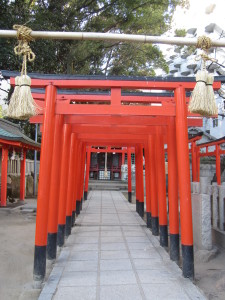Safety

- The handling of swords in any capacity is potentially dangerous. Therefore, for the general safety and well being of the participants, certain rules must be in effect at all times during training class. It is the direct responsibility of every student to know and abide by these rules.
- Always let the instructor know if you are suffering from any physical disability, restrictions, injury, illness, or require special assistance before class.
- Do not come to class when suffering from a contagious illness. Rest and come back to class when you have fully recovered.
- Try your best, but do not overdo it. You can take a break when needed. Just let the instructor know.
Do not run or act recklessly in the dojo. There will be no horseplay in the dojo or dressing rooms.
- When the instructor says “FREEZE” do exactly that, FREEZE. Don’t move to where you think he wants you to be, don’t make any kind of adjustments, simply stop all movement and stand there until he tells you to move.
- NEVER walk behind someone training with a sword. They cannot see you.
- If your sword slips out of the saya, do not try to catch it. Step back and let it fall to the floor.
- Check your sword’s general condition before every class; pay special attention to the mekugi pin in the handle. If you have any doubts, ask your instructor immediately.
- Always be aware of where you are and where everyone else is while training. Develop this awareness and keep your distance.
- Control your sword at all times, keep your thumb on the Tsuba when bowing and moving about.
- Never make wild or careless motions with an unsheathed or sheathed sword at any time.
- Never place an unsheathed sword on the floor or on the rack.
- When handing a sword out of its sheath to another person, hold the bottom of the handle with your little finger at the butt. The blade’s cutting edge should face you.
- When accepting a sword out of its saya, grasp the handle firmly at the guard with your left hand.
- Wear your obi and hakama properly snug. Hakamas should never be overly long or short. They should just touch the tops of your feet.
- Before cutting check the mekugi peg in your sword’s handle. If it is missing or loose, inform sensei immediately.
- When cutting, be aware of whether or not you have bent your sword’s blade. Allow your instructor to straighten it if needed. Never attempt to sheath a bent sword.
- During cleaning, keep sword blade pointed away from other students. (Face a wall)
Attitude
- As you advance, ego is a constant enemy. Remain humble.
- Always accept correction positively and with an open mind.
- Always be courteous in demeanor and be helpful to juniors and each other.
- Always maintain a beginner’s attitude. You can’t learn if you think you already know it.
- Pay close attention to what your instructor has to say at all times.
- Come to class to learn. Practice at home.
- Do not become angry or upset in the dojo.
- It is far better to know one kata well than dozens of katapoorly.
- Never criticize other schools or styles of the martial arts.
Dojo Duties
- All students share in the responsibility for keeping the dojo safe and clean.
- Please arrive at least a half of get changed so that training can begin on time.
- Every student should help clean the dojo floor and mirrors after each class.
- Never let a student with higher seniority work harder than you.
- Never leave clothing or valuables of any type in the dojo. We will not be responsible for these articles if lost or stolen.
- Arrive a half hour earlier to prepare targets and soak tatami for next class.
Welcome to Shiseikan Dojo

